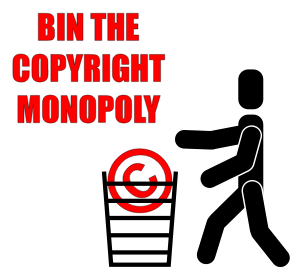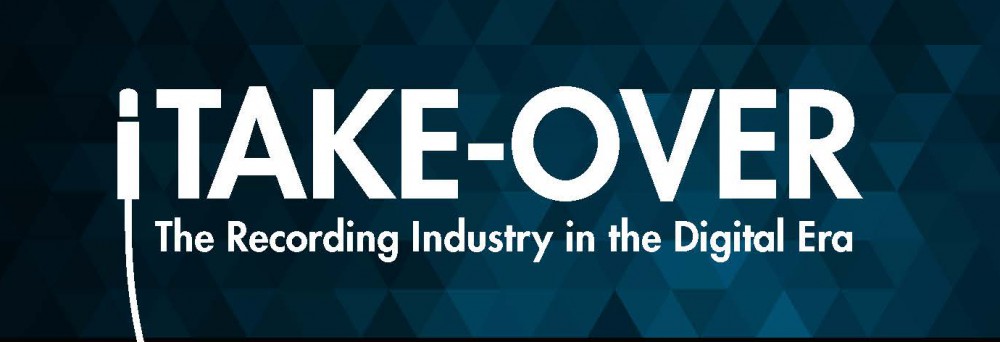 As the US Copyright Office pushes forward with plans for the largest overhaul of copyright in decades, it is important not to fall back to the same patterns that have eviscerated musicians and other creative producers. These copyright rewrites always end-up making powerful copyright interests more powerful.
As the US Copyright Office pushes forward with plans for the largest overhaul of copyright in decades, it is important not to fall back to the same patterns that have eviscerated musicians and other creative producers. These copyright rewrites always end-up making powerful copyright interests more powerful.
This is primarily due to structure. Jessica Litman explains how copyright law is created at a multiparty negotiating table. At the table are those interests that currently have a stake in copyright law. Unfortunately, no one (except by extension librarians) represents the public interests. And particular interests claim to speak for stakeholders not included at the table.
Most egregiously, major record labels claim to articulate the interests of musicians. However, these very copyrights are what exploit musicians. The Recording Industry Association of America (RIAA)’s mission statement admits that it is “the trade organization that supports and promotes the creative and financial vitality of the major music companies.” But later claims it “works to protect the intellectual property and First Amendment rights of artists and music labels.” When in fact, copyright law allows record labels to expropriate profit from recording artists while “the vast majority of singers and musicians get almost nothing from copyright protection.”
The rhetoric of the RIAA is no different this time around. They released a lengthy statement that states “For example, a performance right for FM and AM radio is long overdue. The fact that a multi-billion dollar broadcasting industry that derives its value from music gets a special interest carve-out from paying artists and labels continues to be indefensible.”
In the second sentence if you changed “broadcasting” to “recording” and deleted “and labels,” the sentence truly expresses the problem of the industry. Record labels derive their value from the labor of recording artists, but more often than not, these musicians receive nothing in return. The only way to fix the situation is to envision a new copyright (maybe not even called copyright).
One policy change in the works is fair and demonstrates the realignment of power among stake-holders. As long as we have copyright, a performance right for terrestrial radio is necessary. When copyright was revised several times at the beginning of the 20th century, radio was more powerful within the broader  music industry than the nascent record labels. Looking at the split between performance rights in other venues and the lack of a performance right on radio demonstrates precisely how arbitrary copyright policy is.
music industry than the nascent record labels. Looking at the split between performance rights in other venues and the lack of a performance right on radio demonstrates precisely how arbitrary copyright policy is.
However, fixing performance rights for terrestrial radio is not fixing copyright. Rather, it is an admission that the system is fundamentally unfair.
There are alternative proposals for copyright. For example, economist Dean Baker proposed what he calls the “artistic freedom voucher (AFV).” An AFV would be a refundable tax credit that could be donated to creative workers. This would allow creators to be paid through a public entity that is removed from corporate labels.
We do not have to take Baker’s approach, but we need to be imaginative. We should no longer accept that the way things are as they way they have to be. Rewriting copyright should reinvigorate creative workers and release them from exploitation by allowing them to retain their rights (not just their copyrights).

Pingback: The Recording Industry in Numbers: A record label centered view of recorded music | iTake-Over
“Rewriting copyright should reinvigorate creative workers and release them from exploitation by allowing them to retain their rights (not just their copyrights).”
Maybe I’m missing something here but recording artists and songwriters have that ability now. By not signing a contract with a record label or music publishing company. Or do you mean to go back and undo previous agreements they entered into?
LikeLike
Both. We need to rewrite copyright (or eliminate it) thereby disempowering major labels. Yes, musicians can refuse to sign the contracts, but some still will despite their best interest. This happens because the dream of getting signed prevails among many aspiring musicians.
LikeLiked by 1 person
Fair enough position to take. How will that effect all the independent music labels that now exist?
LikeLike
We need to rethink the structure of labels themselves. I think one of the main problems lies in the position of musician labor at many labels. While they create the label’s commodity and wealth, they are viewed as contractors instead of workers. Copyright creates this relationship by reinforcing a romantic notion of the artist. A place to start would be to compensate musicians for their labor. Then we could think of alternative models.
LikeLike
In the words of the actor Christopher Walken “Wowe Zowe”. But you’re in luck, I build ivory ladders to get you down from that tower.
Seriously, while it is always the easy way out to start from scratch in solving a perceived problem, this is no real answer for today. What you are proposing has no application in reality. I live and work in the legal and business end of music everyday, 24/7. And probably have done so since before you were even born. I am not interested in discussing ideas and pathways to solutions if they have absolutely no chance of being put into effect. On the other hand, if you want to start out dealing with today’s music business, I am open to ideas. I hope you don’t perceive this as being rude but your time and mine is very valuable. Best, David
LikeLike